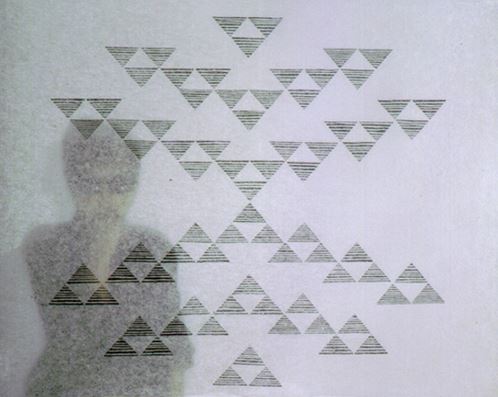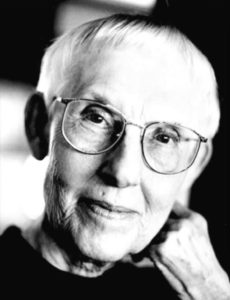It’s not that the point of practice is to avoid feeling hurt. What we call ‘hurt’ still happens: I may lose my job; an earthquake may destroy my house. But practice helps me to handle crises, to take them in stride. So long as we are immersed in our hurt, we’ll be a bundle of woe that is of little use to anybody. If we’re not wrapped up in our melodrama of pain, on the other hand, even during a crisis we can be of use.
zonder behoefte
… de staat van verlichting: de staat waarin een mens tot op grote hoogte iedere willekeurige situatie, goed of slecht, kan omarmen. Ik heb het niet over een heilige; ik heb het over die staat (die vaak pas na een enorme strijd wordt bereikt) waarin het OK is. We vragen ons bijvoorbeeld vaak af hoe we zullen sterven. De sleutel is niet te leren hoe je moedig kan sterven, maar te leren niet de behoefte te hebben moedig te sterven. Op kleine punten kunnen we dat misschien, maar meestal willen we iets anders zijn dan we zijn. Dat is echt een interessante houding: niet te leren iedere situatie maar te dulden, maar te leren niet de behoefte te hebben een bepaalde houding tegenover een situatie te hebben.
joko beck on sitting practice
“There’s nothing in sitting except maintaining awareness. Our ability to do that grows over time. You can call that progress if you want, but basically we are just returning to what we’ve alway been. There’s really nothing special about it. So any idea that there’s something special about sitting, that we have to get into some spiritual state, or some wonderful state, that’s not it.
As you’re sitting, if you really maintain awareness, which you probably won’t, but if you do, it feels so different from what we ordinarily do that we may think we’ve done something special, but we haven’t really.
I want to emphasize that sitting is not about shutting out your thoughts, its about seeing them as thoughts of no importance whatsoever. But I don’t know of anyone who doesn’t think his or her thoughts are of some importance, including me sometimes. We definitely don’t see our thoughts as little energy blips that for whatever reason are set off. (meer…)
joko beck on ordinary mind – gateless gate
Tienduizend bloemen in het voorjaar,
de maan in het najaar,
Een koel briesje in de zomer, sneeuw in de winter
Als je geest zich niet laat verduisteren
door onnodige dingen,
Dan is DIT het beste seizoen van je leven.
krachtige liefde wensen
“We zijn allemaal gewoon kinderen. De mate waarin we kunnen groeien is oneindig. En uiteindelijk als we geduldig genoeg zijn en hard genoeg werken is er een mogelijkheid dat we een echte bijdrage aan deze wereld kunnen leveren.
In dit eenzijn waarin we tenslotte leren leven, bevindt zich de liefde; niet een of andere slappe versie, maar liefde met echte kracht. We willen dat die in ons leven en in het leven van andere mensen aanwezig is. We willen hem voor onze kinderen, voor onze ouders, voor onze vrienden. Dus het is aan ons om het werk te doen. […]
Doe gewoon je best. Hou je aan het zitten. Kom naar de sesshin, kom zitten en laten we allemaal ons best doen. Het is echt belangrijk: deze totale verandering van de kwaliteit van het menselijk leven is het belangrijkste wat we kunnen doen.”
interview met joko beck
‘How old were you when you started meditating?
Charlotte Joko Beck: Thirty-nine, forty, somewhere in there.
Did you have any realization through meditation?
No. Of course we have realizations, but that’s not really what drives practice.
Will you say more about that?
I meet all sorts of people who’ve had all sorts of experiences and they’re still confused and not doing very well in their life. Experiences are not enough. My students learn that if they have so-called experiences, I really don’t care much about hearing about them. I just tell them, “Yeah, that’s O.K. Don’t hold onto it. And how are you getting along with your mother?” Otherwise, they get stuck there. It’s not the important thing in practice.
And may I ask you what is?
Learning how to deal with one’s personal, egotistic self. That’s the work. Very, very difficult.
There seems to be a payoff, though, because you feel alive instead of dead.
I wouldn’t say a payoff. You’re returning to the source, you might say-what you always were, but which was severely covered by your core belief and all its systems. And when those get weaker, you do feel joy. I mean, then it’s no big deal to do the dishes and clean up the house and go to work and things like that.’
charlotte joko beck
“Charlotte Joko Beck (1917-2011) was a Dharma heir of Hakuyu Taizan Maezumi and also studied with Haku’un Yasutani and Soen Nakagawa. She established the Zen Center of San Diego in 1983 and was the author of Everyday Zen (1989) and Nothing Special (1993). It is no exaggeration to say her teaching transformed the nature of Zen in America, restoring a sense of emotional reality to a practice that all too often bypassed the “merely” psychological in the pursuit of realization.
In a generation plagued by scandal, including the misconduct of her own teacher, she had the courage to challenge the traditional modes of teaching that failed to address the underlying character flaws. She made facing anger, anxiety, and self-centeredness central to our work on the cushion, examining how these marked the limits of our willingness to fully be present to the moment-by -moment truths of interconnectedness and impermanence. She taught us to find the Absolute in each moment regardless of its content, and not to turn practice into the pursuit of kensho experiences. Enlightenment, she taught, was the absence of something, not the added presence of some special experience. Being just this moment was compassion’s way.
As one of the first Western women teachers, she attempted to free American Zen from many of the trappings of Japanese culture and patriarchy. She discontinued shaving her head, wearing formal robes or using Japanese titles. One of her great virtues as a teacher was that she did not try to clone herself. She let her own students and heirs digest her teaching and grow in their own different directions.
There is no central Ordinary Mind training center. There is no hierarchy among her Dharma heirs, no single voice that clearly continues her message. Her legacy is broad and cultural, a sea-change in how our generation thinks about the nature of practice and its relationship to our personal psychological make-up. Her Dharma seeds are scattered far and wide. They will go on sprouting in ways we cannot predict and cross-fertilize with other lineages. The Ordinary Mind School may grow or wither, but her influence is now everywhere.” – Ordinary Mind Zendo
The excerpt below is taken from James Ishmael Ford’s article “Zen as nothing special: Charlotte Joko Beck and the Ordinary Mind School of Zen” on Lion’s Roar. Adapted from his book “Zen Master Who? A Guide to the People and Stories of Zen,” published by Wisdom Publications.
“As for her teaching style, it seemed nothing was off the table. She would play down the enlightenment experiences known as kensho as being “small intimations.” And of Dharma transmission, the process by which one teacher would recognize a student as a new teacher and hands down teaching authority, Joko said, “It’s no big deal.” At the same time, there was clearly a Zen sensibility permeating what she did.
Barry Magid, one of her Dharma heirs (he leads the Ordinary Mind Zendo in New York City) and a practicing psychiatrist in New York, writes: “To me Joko always stressed experiencing the absolute in the midst of the everyday. Staying with anger or anxiety wasn’t so much a technique for dealing with emotion as a way of seeing emotion itself, resistance itself, as IT. Not as obstacles on the path to be worked through and removed, but the path itself.”
As he was nearing the end of his own formal training, Dr. Magid writes, “I felt like a peach she would occasionally sniff and squeeze and one day she said OK, you got it. And that was my transmission ‘ceremony.’ (Followed by a notice in the newsletter, under the parking instructions, that the Dharma had been transmitted to me.…)” – James Ishmael Ford

